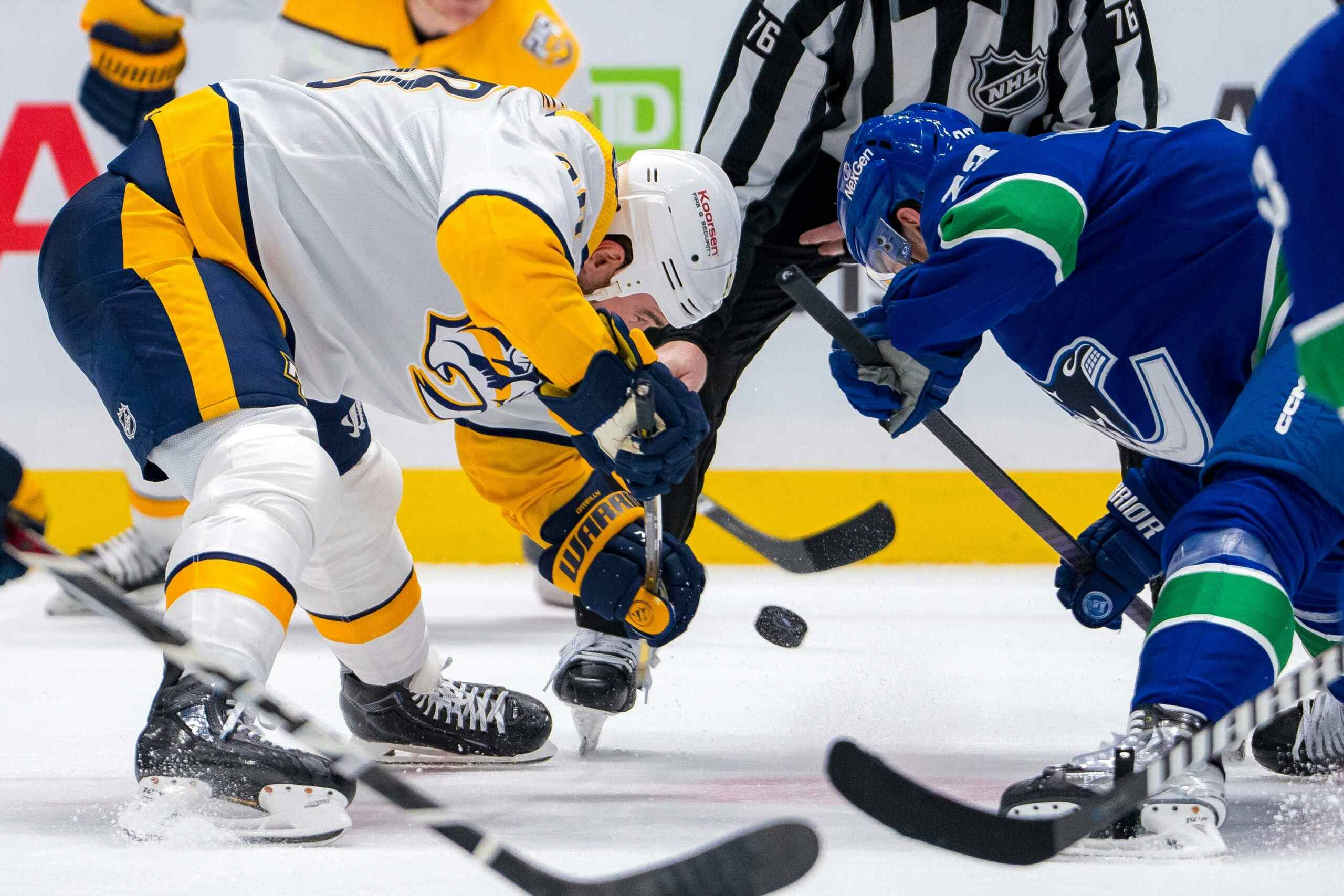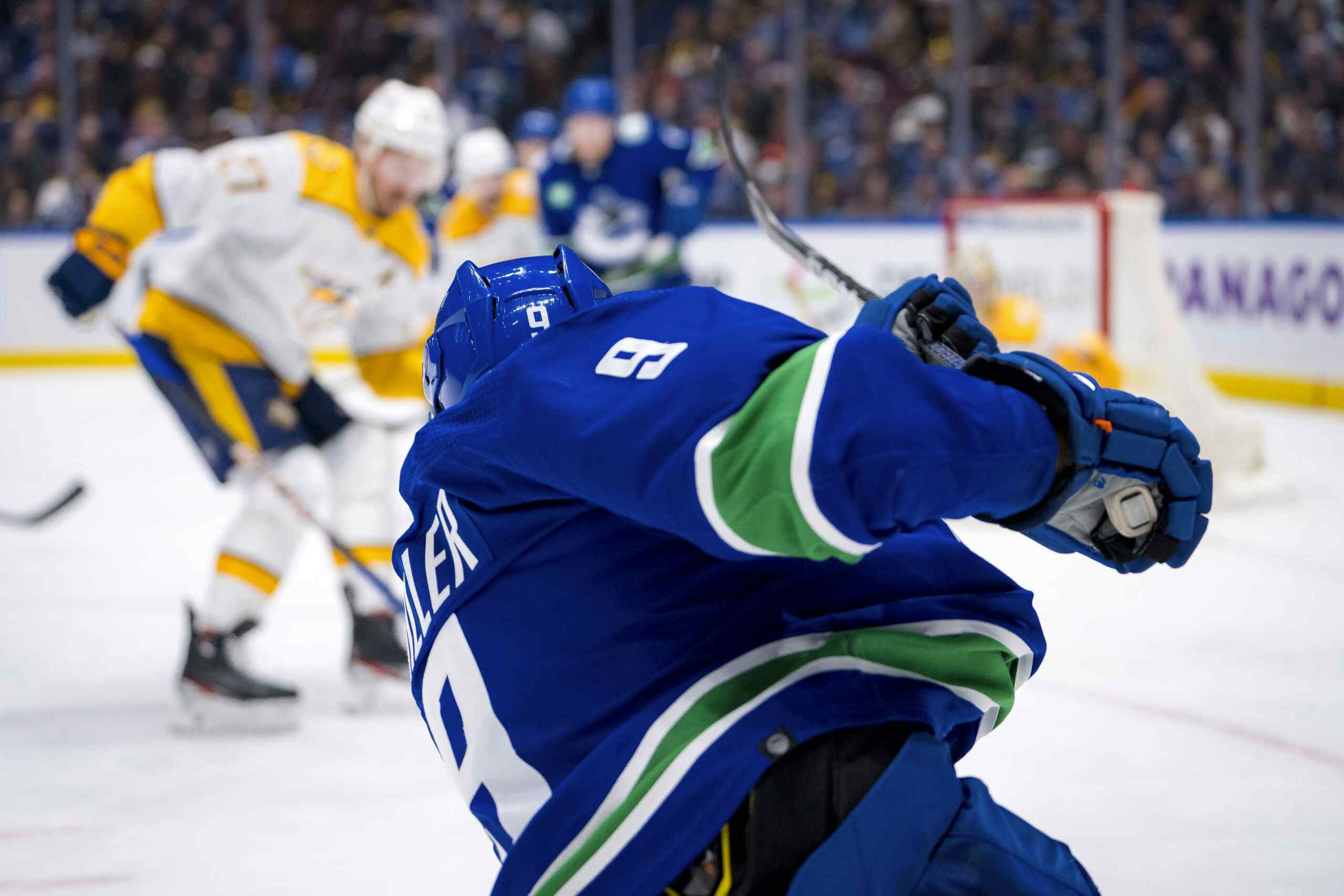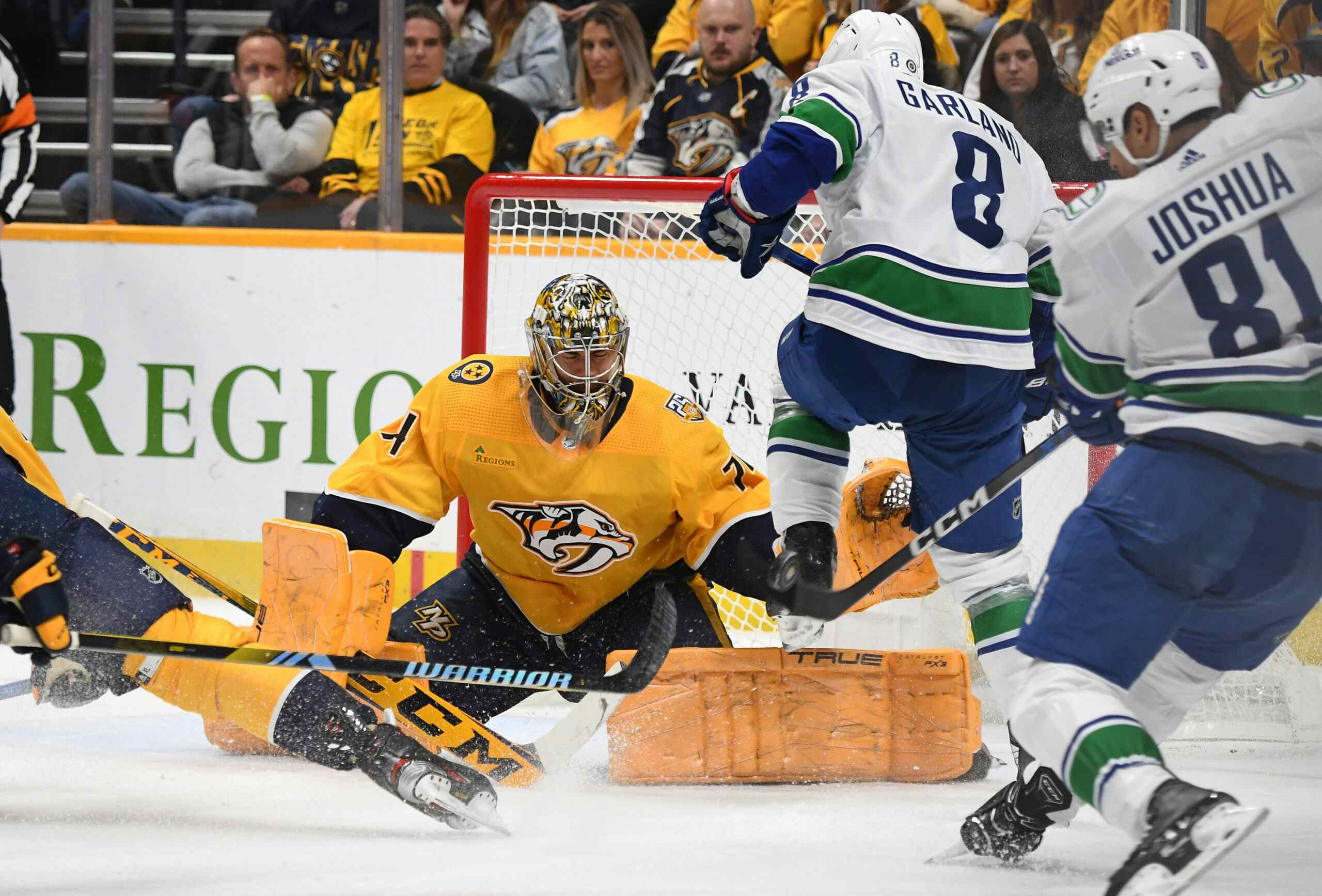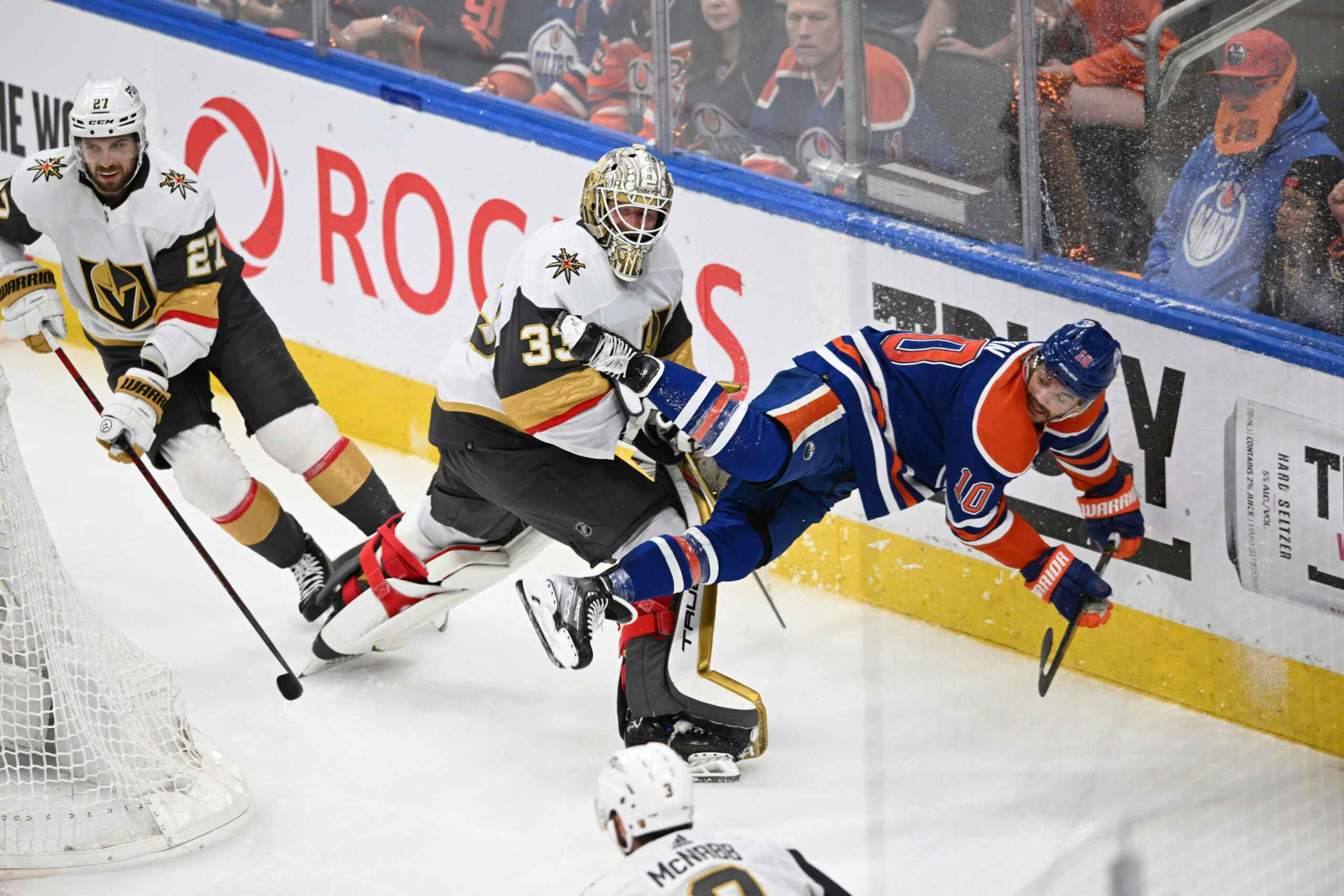Ryan Parent: What Went Wrong?
By Jeff Angus
11 years ago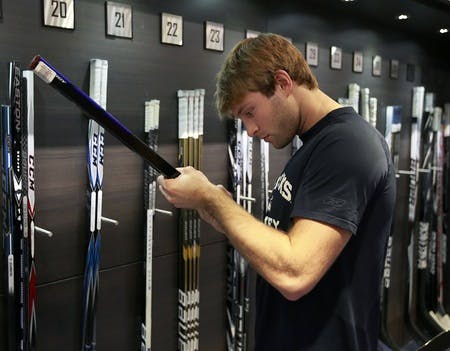
Google “Ryan Parent bust” and close to 200,000 results come up (although in fairness many of them link to article about Ryan Leaf). Parent was once an important piece of the trade that sent Peter Forsberg from Philadelphia to Nashville. How far has he fallen? In December 0f 2011, the Chicago Wolves pawned him off on Canada’s Spengler Cup team. Parent was barely playing, and the Wolves wanted to give ice time to their better defensemen.
Click past the jump for more.
At his peak, Parent formed a dominant shutdown defensive pairing with Marc Staal for Canada, winning consecutive gold medals at the 2006 and 2007 World Junior Championships. The Predators liked what they saw out of him during the 2004-05 season, selecting him 18th overall that summer (his Guelph Storm teammate, Dan Girardi, went undrafted and has gone on to become one of the best defensive defensemen in the game).
Parent was an imposing figure on the ice in the OHL, but he didn’t play with a physical edge (although teams thought he would develop that part of his game as he matured). Scouts were intrigued by his combination of mobility and size/strength, and they chose to overlook his glaring lack of production. From The Hockey News:
“Parent’s overall game far outweighs his production at this stage of his development; plays a no- nonsense style with plenty of intangibles; captained the Canadian entry at the 2005 World under-18 tournament and led the club to a silver medal–despite not earning a point in six games; needs to add more aggression to his game in order to eventually keep NHL forwards honest.”
Key parts – lack of production, intangibles, needs to add more aggression. Hmmm…
Even though he focused on the defensive side of the game, Parent’s lack of offensive production should have been an early warning sign. He scored only 10 goals in 227 OHL games, well below the production of a few draft peers and a former teammate:
- Marc Staal – 23 goals in 236 games (12th overall in 2005)
- Jakub Kindl – 26 goals in 176 games (19th overall in 2005)
- Dan Girardi – 21 goals in 230 games (undrafted)
Parent had the pedigree to succeed. He was a high draft pick (8 th overall) in the 2003 OHL Priority Selection. He had a solid OHL career, and he was a key piece for Canada against the best competition at his age level.
The lack of production in the OHL was a warning sign, but it was one that was overlooked.
Parent turned professional after his 2006-07 season concluded. He joined Philadelphia’s farm team (he had been traded from Nashville a few months previous), and he was a full-time member of the Phantoms in 2007-08. Parent’s tenure in Philadelphia would have completely forgettable had it not been for the 2009-10 playoff run. Due to a number of injuries on the back end, Parent was forced in to duty, suiting up for 17 of the 23 postseason games. He suited up for a grand total of 41 seconds in the Cup Final (one shift in game one, and it probably wasn’t a good one).
Philadelphia didn’t have any confidence in him. During those 17 postseason games, he played over 12 minutes only twice. His ice time was sheltered, and he still struggled.
Since we love advanced stats at Canucks Army, let’s see how Parent stacked up in 2009-10 against his teammates. Parent’s Relative Corsi number (the difference in Corsi rating when a player is on the ice compared to when he is on the bench) was a miserable -22 during his final season with the Flyers. When he was on the ice, the Flyers were giving up a ton of shots. It was even worse in the postseason (-24.9).
Parent was facing weak competition, playing for a strong hockey team, and still struggling. As if more warning signs were needed, Parent then underwent back surgery in January of 2010.
That summer, the Flyers traded him back to Nashville in a deal to acquire the rights to Dan Hamhuis. The Predators must have subscribed to the ‘fool me once, shame on you, fool me twice, shame on me’ philosophy, as Parent had done absolutely nothing to show himself worthy of reacquiring. His highest goal total in any single season since turning pro was one (a number he hit a few times).
The Predators sold high on Parent back in 2007 after his impressive performance at the World Juniors (for more on selling high on players after the World Juniors, read this piece I wrote a few years ago), and they bought low on him after a miserable start to his professional career in Philadelphia.
Parent didn’t last long in his second stint with the Predators. The team flipped him a few months later to Vancouver for Shane O’Brien. Being traded for Shane O’Brien was warning sign three. Canuck fans quickly saw what Philadelphia fans were subjected to – a smooth skating defenseman with good size and nothing else. It was quickly apparent that Parent lacked basic puck skills in all three zones, and he struggled consistently with his decision making in his own zone (it is hard for a defenseman to be successful if he doesn’t know what to do defensively).
Claude Noel coached Parent in Manitoba for a season, and delivered one of the greatest hyperboles of our time when assessing his game:
“He reminds me of the Ken Morrows of the world,” said Noel.” Coaches have a lot of appreciation for those types of guys that fall under the radar of glitz and flash, but are staples of your defense.”
Morrow, one of the best defensive defensemen in NHL history, recorded 15 goals and 52 points in his final season of college hockey before turning pro. Obviously he played in a different era and a different league, but production is production.
Broad Street Hockey delivered a brutally honest evaluation of Parent’s play during the 2009-10 season here. If the advanced statistics from earlier weren’t enough:
“What is there to say about Ryan Parent? It’s all been said before. He had a really bad (not quite terrible) regular season, got injured, came back and continued his really bad season. This then turned into a terrible playoffs for Ryan Parent, eventually leading to him being benched and then scratched.”
Parent’s contract expires this summer and he won’t be brought back by the Canucks. He seems destined to ply his trade in Europe, as he has failed multiple times to prove he is anything more than a borderline AHL defenseman. The warning signs were there all along, but multiple teams chose to ignore them, intoxicated by Parent’s size and mobility. You can’t teach size, but often times you can’t teach hockey sense, either.
Recent articles from Jeff Angus

